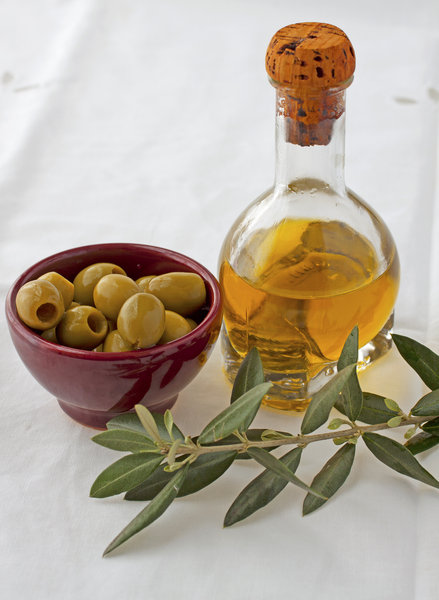Olives

What are olives?
Olives are the fruit of the olive tree, which grows mainly in the Mediterranean region. They have an elliptical to spherical shape and a hard stone in the soft flesh. Olives come in different colors, depending on their degree of ripeness: green olives are unripe, black or purple-brown olives are ripe.
Olives are not usually eaten raw, but pickled or processed into olive oil. They have a characteristic taste that can vary from sweet to bitter. Some people love olives, others don't like them at all. What about dogs?
Can dogs eat olives?
The good news is: yes, dogs can eat olives! Olives are not poisonous for dogs and can even have health-promoting effects. However, there are a few things to consider before you offer your dog olives.
Benefits of olives for dogs
Olives contain many valuable nutrients that are important for your dog's health. These include:
- Vitamin A: supports vision, skin and the immune system
- B vitamins: promote metabolism, nerve function and blood formation
- Vitamin E: protects against free radicals and inflammation
- Vitamin K: helps with blood clotting and bone formation
- Magnesium: regulates muscle and nerve tone and blood pressure
- Phosphorus: together with calcium, forms the basis for strong bones and teeth
- Calcium: also strengthens bones and teeth as well as muscles and the heart
- Potassium: supports kidney function and fluid balance
- Sodium: is also important for the fluid balance and the acid-base balance
Olives are particularly rich in unsaturated fatty acids, which can protect your dog's cardiovascular system. They lower cholesterol levels and lower blood pressure. They can also nourish and shine your dog's skin and coat.
Disadvantages of olives for dogs
However, olives also have some disadvantages that you should be aware of. Firstly, they are very high in fat and calories. This means that you should only feed them in moderation to avoid your dog becoming overweight or having digestive problems.
Secondly, not all olives are equally suitable for dogs. You should only feed ripe, black or purple-brown olives, as green olives are still unripe and contain many bitter substances that can harm your dog. You should also make sure that the olives are not salted or preserved in oil, as this is too much salt or fat for your dog.
Another point is the pit of the olive. It can cause a choking hazard or intestinal obstruction in your dog if he swallows it. Therefore, you should always pit the olives before giving them to your dog.
How can you feed your dog olives?
If you want to feed your dog olives, you should follow some tips to make it safe and enjoyable for him.
- Choose only ripe, black or purple-brown olives that are not salted or preserved in oil. Fresh olives from the market or health food store are best.
- Always pit the olives before giving them to your dog. You can also cut them into small pieces to reduce the risk of him choking.
- Only feed small amounts of olives as a snack between meals or as a reward. A rule of thumb is that olives should make up no more than 10% of your dog's daily calorie intake.
- Observe your dog's reaction to olives. Some dogs don't like them at all, others tolerate them well. If your dog shows signs of intolerance, such as diarrhea, vomiting or itching, you should stop feeding olives immediately and seek veterinary advice.
- Introduce olives slowly into your dog's diet. Start with a small amount and gradually increase it if your dog tolerates it well. This way you can prevent gastrointestinal problems.
Olives are not only allowed for dogs, they are also healthy. They provide many important nutrients and can strengthen your dog's cardiovascular system. However, you should only feed your dog ripe, black or purple-brown olives that are not salted or preserved in oil. You should also always pit the olives and only offer them in small quantities as a snack.
If you notice any signs of hypersensitivity or poisoning in your dog, you should see your vet immediately. We are not a substitute for a vet, but we try to be as accurate as possible. Every dog reacts differently and we recommend you get a second opinion or consult your vet if in doubt.
Stay healthy and take good care of your four-legged friend!😊